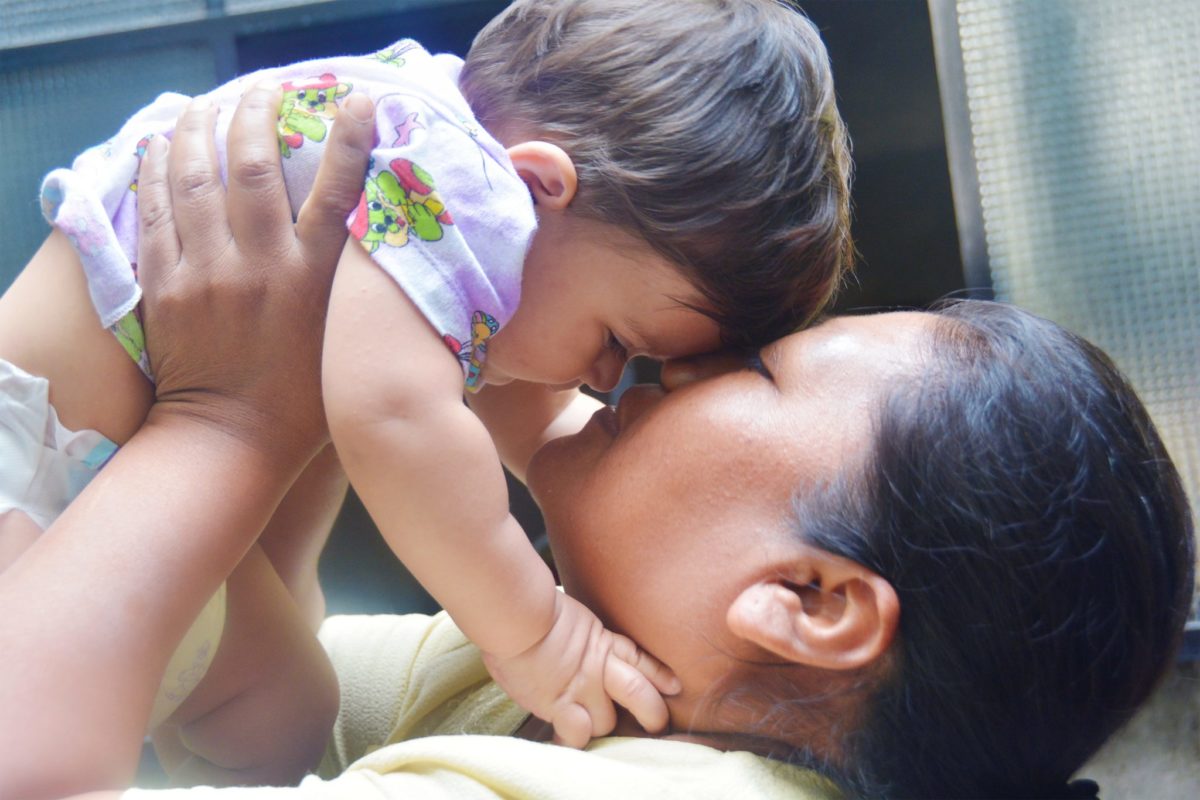#March4Nutrition: Envision better support for the most vulnerable babies, toddlers and families

This National Nutrition Month, 1,000 Days is imagining a world in which all moms and babies are healthy, nourished and thriving through our annual #March4Nutrition campaign.
All month long we have been featuring the issues affecting mothers and their children, the work of 1,000 Days and our partners to ensure moms and babies are healthy and thriving, and how you can get involved!
This week we’re envisioning better programs that help the most vulnerable babies, toddlers and families get the food, nutrition and support they need to thrive.
Programs and policies that prioritize the health and nutrition of moms and babies can significantly improve health outcomes for young children and their families. These societal investments can positively impact the nutritional health of women, infants, toddlers and families by improving access to healthy foods, increasing a family’s economic security, and improving access to health services.
Providing moms and babies with the right supports – from the start – sets them up for success for the rest of their lives. But that requires expanding and strengthening programs and policies that help the most vulnerable with food and nutrition in the U.S. and around the world.
The Current Situation
Throughout the world, millions of young children and their mothers are struggling to get the nutrition, health care and support they need to thrive. Globally, an estimated 151 million children under age five are developmentally stunted as a result of chronic malnutrition in the first 1,000 days. Importantly, the data shows that 20-30% of childhood stunting begins before a baby is even born, highlighting the need to focus on maternal nutrition before and during pregnancy to stop the cycle of malnutrition.
This global crisis requires action and investment in the nutrition and well-being of women and children in the first 1,000 days, with a focus on the most disadvantaged.
In the U.S., poverty is a key driver of malnutrition as poor families struggle to access nutritious food and health services. A staggering 1 in 6 children in the U.S. under age 6 live in families that struggle to put enough nutritious food on the table every day. These children are less likely to get a thriving start to life because persistent food insecurity and poor nutrition put young children at risk of developmental delays and cognitive deficits.
Federal nutrition programs like the Special Supplemental Nutrition Program for Women, Infants and Children (WIC) and the Supplemental Nutrition Assistance Program (SNAP) play a critical role in supporting the health and nutrition of young children and their families. Half of all babies in the U.S. are born into families participating in WIC, meaning their families receive supplemental nutritious foods, health care referrals, nutrition education, and breastfeeding support. WIC is a proven effective program that improves birth outcomes, access to healthy food and a child’s development.
The Opportunity
We envision a world where ALL babies, toddlers and families can access the food, nutrition and support they need to nourish themselves and the next generation.
Globally, 1,000 Days is helping to reduce the number of children who are affected by the devastating effects of malnutrition by advocating for proven, cost-effective nutrition programs. In 2018, Congress extended the Global Food Security Act (GFSA) for another 5 years through 2023. This legislation is an important step forward in recognizing that the nutritional status of women and children, especially during the critical 1,000-day window, is essential. 1,000 Days played a key role in advocating for the nutrition provisions in the legislation and continues to work to strengthen and expand global nutrition programs.
In the U.S., 1,000 Days educates policymakers on the critical importance of WIC, seeking to ensure ALL eligible women and children can participate in the program. 1,000 Days also championed the passing of a bipartisan Farm Bill that protects the Supplemental Nutrition Assistance Program (SNAP). This means better access to nutritious foods for millions of families with young children.
In a world where all babies, toddlers and families have the support and nutrition they need, moms and their children will be nourished and healthy in their first 1,000 days and beyond.
